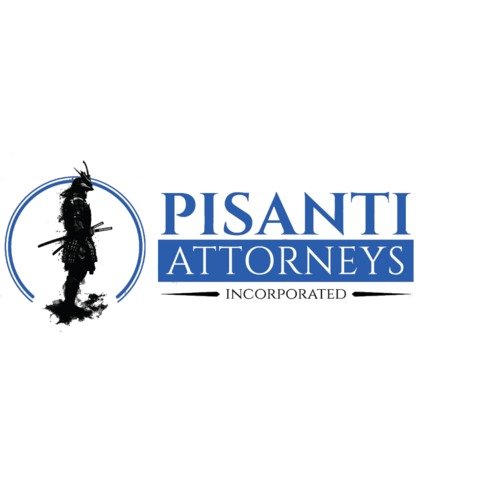Best Education Law Lawyers in Germiston
Share your needs with us, get contacted by law firms.
Free. Takes 2 min.
List of the best lawyers in Germiston, South Africa
About Education Law in Germiston, South Africa
Education law in Germiston, South Africa, encompasses a range of legal issues and policies that affect educational institutions, students, teachers, and other stakeholders. The field involves the governance and regulations of schools and the rights and responsibilities of students and educational staff. Critical areas include school admissions, discipline, student rights, teacher employment contracts, and the overall governance of educational policy. This area of law ensures that educational practices are in line with constitutional mandates and other statutory requirements.
Why You May Need a Lawyer
There are numerous situations where individuals or institutions might require legal assistance in the field of education law. These include cases involving the denial of school admission, disciplinary actions against students or educators, discrimination or violation of rights within educational settings, disputes related to teacher employment contracts, allegations of misconduct, and the need to understand new educational regulations and policies. Legal guidance can help navigate these complex issues and protect the rights of those involved.
Local Laws Overview
Education in Germiston is governed by both national and provincial legislation. The South African Constitution guarantees the right to basic education, and the South African Schools Act governs many aspects of school management. Key aspects of local education law include adherence to standardized curriculum requirements, enforcement of compulsory education ages, policies on language of instruction, inclusivity for students with disabilities, and adherence to safety and infrastructure standards. Additionally, the declaration of rights and responsibilities for students and educators is crucial in maintaining an equitable educational environment.
Frequently Asked Questions
What rights do students have in public schools?
Students have the right to a basic education, the right to not be discriminated against, and the right to be treated with dignity. This includes protection against unfair discipline and access to necessary educational resources.
Can a school deny admission to a student with disabilities?
No, schools cannot deny admission based on a disability. Schools are required to accommodate students with disabilities and provide an inclusive educational environment.
What are the grounds for disciplining a student?
Grounds for disciplining students typically include infractions such as violence, theft, vandalism, and recurrent disruptive behavior. Each school should have a clear code of conduct outlining these grounds.
How are school fees regulated for public schools?
Public schools may charge fees, but they must conform to national guidelines. Parents unable to pay fees may apply for exemptions or reductions based on their financial situation.
What should a teacher do if they feel they are unfairly treated by their employer?
Teachers who feel unfairly treated should consult with their union representative if applicable and may also seek legal counsel. Complaints can be filed with the relevant educational authorities or labor departments.
Are home schooling options available in Germiston?
Yes, home schooling is a legal option under South African law. However, parents must register with the education department and ensure that their children meet the required educational standards.
What are the regulations regarding private tutoring or extra classes outside school hours?
Tutors must adhere to national educational standards and cannot replace formal schooling. Offering extra classes is permissible but should not impede the student's formal education process.
How can schools ensure compliance with national educational policies?
Schools must regularly review and update their policies to align with national and provincial educational regulations, conduct training for staff, and engage with regional education departments for guidance.
What is the role of the school governing body?
The school governing body is responsible for setting the vision of the school, financial management, enforcing codes of conduct, and ensuring the school operates within the legal framework.
How can parents be involved in their children’s education legally?
Parents can participate through school governing bodies, attend parent-teacher meetings, volunteer for school-related activities, and engage with educational policy-making processes at the school level.
Additional Resources
Primary resources for education-related legal assistance include the Department of Basic Education, The South African Human Rights Commission, education unions, and legal aid organizations that specialize in school and education law. Also, non-governmental organizations focused on children's rights and education can offer guidance and support.
Next Steps
If you need legal assistance in education law, consider consulting with a lawyer specializing in this field. Contact the local legal aid office in Germiston or approach organizations specializing in educational rights for initial advice. Documentation related to the issue, such as communications from the school, policies in question, and personal notes, should be organized prior to seeking legal help. This can facilitate a more informed and effective consultation.
Lawzana helps you find the best lawyers and law firms in Germiston through a curated and pre-screened list of qualified legal professionals. Our platform offers rankings and detailed profiles of attorneys and law firms, allowing you to compare based on practice areas, including Education Law, experience, and client feedback.
Each profile includes a description of the firm's areas of practice, client reviews, team members and partners, year of establishment, spoken languages, office locations, contact information, social media presence, and any published articles or resources. Most firms on our platform speak English and are experienced in both local and international legal matters.
Get a quote from top-rated law firms in Germiston, South Africa — quickly, securely, and without unnecessary hassle.
Disclaimer:
The information provided on this page is for general informational purposes only and does not constitute legal advice. While we strive to ensure the accuracy and relevance of the content, legal information may change over time, and interpretations of the law can vary. You should always consult with a qualified legal professional for advice specific to your situation.
We disclaim all liability for actions taken or not taken based on the content of this page. If you believe any information is incorrect or outdated, please contact us, and we will review and update it where appropriate.








